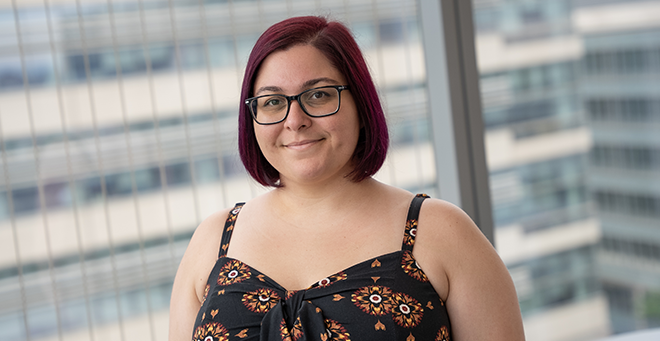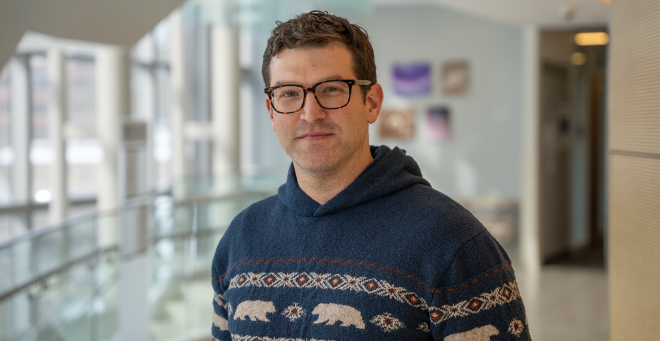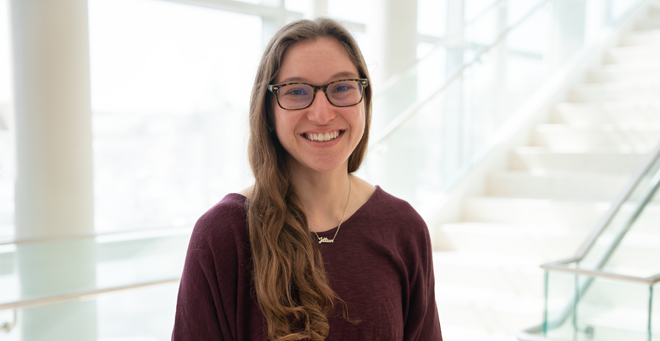
Postdoctoral fellow Samara Vilca, PhD, has been awarded the second phase of the National Institutes of Health Blueprint and BRAIN Initiative Diversity Specialized Predoctoral to Postdoctoral Advancement in Neuroscience (D-SPAN) Award.
Dr. Vilca is studying molecular rhythms in microglia in substance use disorders in the lab of Ryan Logan, PhD, professor of psychiatry and neurobiology.
The D-SPAN Award supports a defined pathway across career stages for outstanding graduate students from diverse backgrounds. This award will allow Vilca to continue some of the research she did as a phase one D-SPAN scholar in graduate school, during which she examined the neuroimmune interactions associated with substance use disorders.
“I was trying to find late-stage training awards and this one felt perfect for me because I knew I wanted to continue my academic career by doing a postdoc following graduate school,” Vilca said.
Vilca studies the innate immune cells of the central nervous system called microglia, and how they change and respond to substance abuse. Incorporating the work Dr. Logan has done with circadian rhythms, sleep and opioid use disorder, Vilca is interested in looking at molecular rhythms in these cells during opioid use disorder and how targeting rhythms may potentially alleviate some symptoms of chronic opioid use. She said her interest in this work stems from witnessing firsthand how substance use and psychiatric disorders have affected people close to her.
Vilca earned her PhD in neuroscience from the University of Miami Miller School of Medicine and joined UMass Chan in February. She credits her mentors, Dorothy Schafer, PhD, associate professor in neurobiology and Logan, for supporting her in this new phase of her career.
“Being a woman in this field is hard. Drs. Logan and Schafer have made an impact by mentoring numerous women, as well as trainees from diverse backgrounds. Dr. Logan, especially, has done such a great job at fostering an inclusive lab environment to ensure everyone feels heard and seen,” said Vilca.
Vilca said she benefited from diverse mentors throughout her educational journey and hopes to fill that role for others.
“Increasing the number of diverse women in STEM is just as important as increasing diversity overall,” she said.



